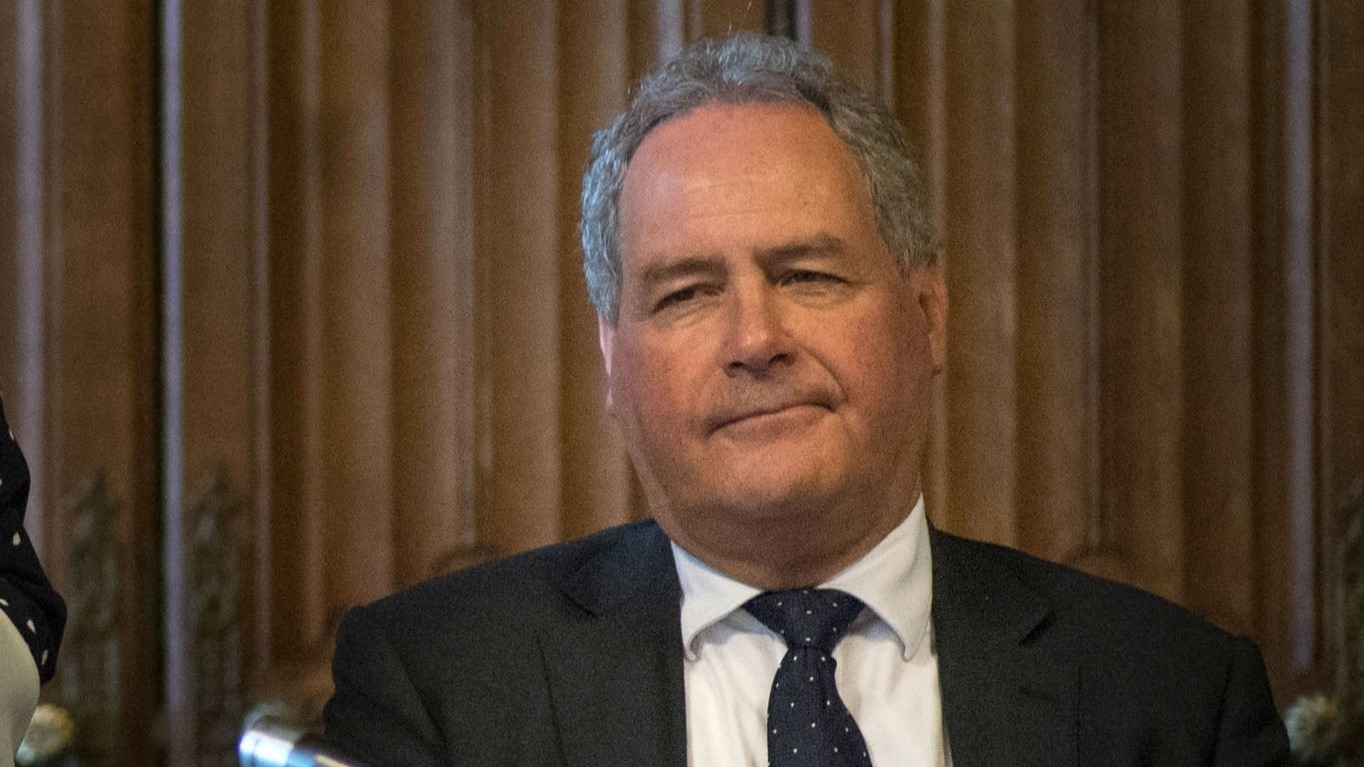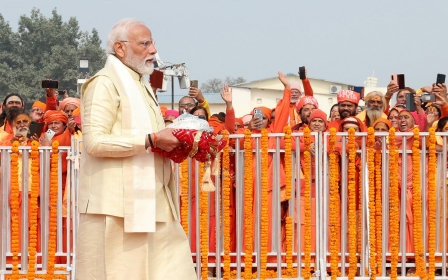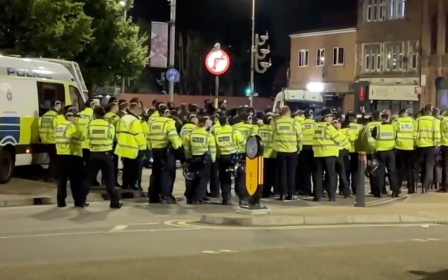Tory MP Bob Blackman attends contentious Ram Temple celebration in UK parliament

A group representing British Muslims has condemned a Conservative party politician for attending an event in parliament to celebrate the consecration of a Hindu temple built on the site of a destroyed mosque in India.
MP Bob Blackman attended the gathering in the House of Commons on 16 January. It was organised by a British Hindu group, Sanatan Sanstha UK, known for its support for Hindu nationalism.
The event was organised ahead of a controversial ceremony held on 22 January in Ayodhya, India, in which India’s Prime Minister Narendra Modi consecrated the contentious Ram Temple, which is still under construction.
That building was constructed on the site of the Babri Masjid, a mosque torn down by Hindu mobs in 1992, sparking communal violence across India.
“We strongly object to the event celebrating the inauguration in the halls of the UK parliament,” the UK Indian Muslim Council said in a statement to Middle East Eye on Wednesday.
New MEE newsletter: Jerusalem Dispatch
Sign up to get the latest insights and analysis on Israel-Palestine, alongside Turkey Unpacked and other MEE newsletters
“It undermines the cohesive values that the UK upholds and seems a disturbing replication of the direction the BJP [Bharatiya Janata Party] government is taking India.”
The event involved participants chanting “Jai Shri Ram”, a Hindu chant meaning “Hail Lord Ram”, which has been appropriated by Hindu nationalists in recent years to intimidate minorities.
“We denounce in strongest terms the continuous attempts of Bob Blackman MP in destroying the peaceful coexistence of different Asian communities in the UK by his support to extremist Hindutva ideologies and organisations,” the UK Indian Muslim Council told MEE, referring to the ideology underpinning Hindu nationalism.
MEE has approached Blackman for comment.
'Worrying' rise of Hindu nationalism
In recent years, analysts have argued that Hindu nationalist groups are growing in influence in the UK.
Bob Blackman, an MP for Harrow, has received over £20,000 (about $26,000) from Hindu nationalist groups directly linked to India’s ruling BJP and the Rashtriya Swayamsevak Sangh (RSS), a paramilitary group that is the main organisational infrastructure for Hindu nationalists in India.
RSS members have been linked to anti-Muslim violence in India - including the 1992 destruction of the Babri Masjid.
The Council also described the rise of anti-Muslim Hindu nationalism in the UK as a “worrying trend”, citing violence in the East Midlands city of Leicester in September 2022.
In May 2023, a Mail on Sunday report citing a UK security source said there was evidence that activists linked to India’s ruling party had incited British Hindus to take to the streets in the Leicester riots.
In 2017, Blackman came under fire for hosting Tapan Ghosh in the House of Commons.
Ghosh is a Hindu nationalist who has called for the UN to control the Muslim birth rate and praised the genocide of Rohingya Muslims.
Blackman said he had been unaware of Ghosh’s remarks.
Last year, Prime Minister Rishi Sunak associated himself with Morari Bapu, an influential Hindu preacher linked to the construction of the Ayodhya temple.
Sunak made a surprise visit to Cambridge University’s Jesus College in August 2023, which was hosting a Hindu ceremony led by the preacher.
"It is truly an honour and pleasure to be here today at Morari Bapu's Ram Katha at the University of Cambridge on Indian Independence Day. Bapu, I am here today not as a Prime Minister but as a Hindu," Sunak said at the event.
Decades-long project
The consecration ceremony in India this week marked the culmination of a decades-long project by Hindu nationalists to establish the Ram Temple over the ruins of a destroyed historic mosque.
For them, the site is believed to have been the birthplace of the Hindu deity Lord Ram.
The temple is contentious because it is being built where a historic sixteenth-century mosque, the Babri Masjid, stood until 6 December 1992 when a Hindu nationalist mob destroyed it.
Hindu nationalist leaders claimed that the mosque had been built over the ruins of a temple.
The demolition of the mosque was accompanied by riots that killed nearly 2,000 people.
Since 1992, Hindu nationalists have campaigned to have a temple built where the mosque once stood.
In November 2019, India’s Supreme Court ruled that the land be handed over to a trust that would oversee the building of a Hindu temple.
It assigned another piece of land in Ayodhya for a mosque, but construction on it has not begun yet.
Leaders of Congress, India’s largest opposition party, refused to attend the ceremony this week - as did those representing multiple other parties.
Prominent Hindu leaders also criticised the consecration, arguing that the ceremony contradicts scriptural instructions because the temple is incomplete.
This week has seen multiple incidents of Hindu nationalist mobs congregating in cities across India, chanting in support of the temple.
Some of them were armed with guns and others reportedly attacked opposition politicians, vandalised Muslim-owned properties, and chanted anti-Muslim slogans.
Middle East Eye delivers independent and unrivalled coverage and analysis of the Middle East, North Africa and beyond. To learn more about republishing this content and the associated fees, please fill out this form. More about MEE can be found here.




